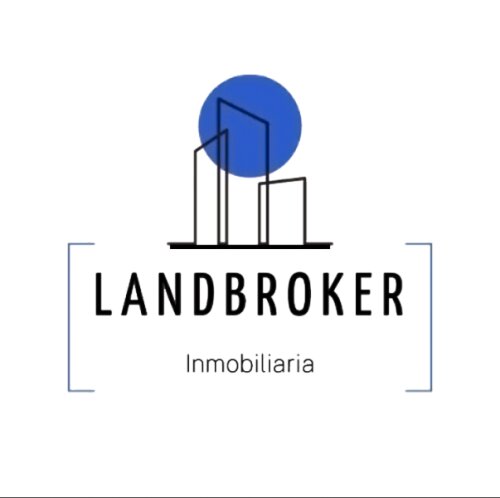Best Real Estate Due Diligence Lawyers in Córdoba
Share your needs with us, get contacted by law firms.
Free. Takes 2 min.
Free Guide to Hiring a Real Estate Lawyer
List of the best lawyers in Córdoba, Argentina
About Real Estate Due Diligence Law in Córdoba, Argentina
Real estate due diligence in Córdoba is the process of verifying legal, fiscal, cadastral and physical aspects of a property before a transaction is completed. The goal is to confirm clear title, identify encumbrances or liabilities, check compliance with zoning and environmental rules, and quantify taxes and fees that affect the buyer or seller. In Argentina the notary public - the escribano - and local property registries play central roles in transfers. Provincial and municipal rules in Córdoba govern cadastral registration, building permissions and provincial taxes, while national regulations can affect rural lands and environmental matters. Proper due diligence reduces the risk of surprises such as liens, unpaid taxes, informal constructions or disputes over boundaries and ownership.
Why You May Need a Lawyer
There are many situations where a lawyer experienced in real estate due diligence is essential:
- Buying or selling property - to review title history, draft or negotiate contractual protections and interpret registry certificates.
- Acquiring rural land - to determine restrictions on foreign ownership, register required declarations and verify agrarian or water rights.
- Investing in developments or purchasing off-plan units - to assess permits, developer solvency, building licenses and condominium rules.
- Resolving disputes - boundary claims, co-ownership conflicts, adverse possession claims or unresolved inheritances require legal analysis and possible litigation.
- Financing or securing loans - to review mortgage conditions, subordinations and the effects of existing encumbrances on lending.
- Regularizing informal works - if constructions lack permits or proper registration, a lawyer advises on administrative regularization and risks.
Local Laws Overview
Key legal aspects to consider in Córdoba include:
- Title and registration - The Registro de la Propiedad Inmueble de la Provincia de Córdoba records ownership, mortgages, embargoes and other inscriptions. A clean inscription and correct chain of title are critical.
- Public deed requirement - Transfers of property are normally formalized through a escritura pública before an escribano. The escribano verifies identities, prepares the deed and files the inscription in the property registry.
- Cadastral and mensura requirements - The Dirección General de Catastro and municipal catastro offices maintain maps and parcel data. A correct plano de mensura and cadastral alignment are essential for accurate boundaries and tax calculations.
- Provincial and municipal taxes - The Province of Córdoba imposes property-related taxes and municipalities charge local taxes and fees. Certificates of no debt are commonly required for closing.
- Condominium law - Properties under horizontal property regime are governed by the Ley de Propiedad Horizontal and specific condominium bylaws and expense regimes. Outstanding expensas are a frequent issue.
- Environmental and land-use controls - Building permits, habilitaciones, environmental impact assessments and protection of certain natural areas are regulated at provincial and municipal levels; non-compliance can result in fines or demolition orders.
- Rural land controls - Foreign ownership and concentration of rural lands may require registration with national or provincial registries and compliance with disclosure obligations. Water rights, easements and access roads are also important.
- Consumer and contract rules - Pre-contracts, reservation agreements and developer obligations may be subject to consumer protection norms and require clear clauses on deadlines, penalties and refunds.
Frequently Asked Questions
What is included in a standard due diligence search in Córdoba?
A standard search typically includes a certificado de dominio and certificado de gravámenes from the provincial property registry, a search for inhibitions or embargos, municipal certificates of no debt for local taxes and fines, comprobantes of pago for property taxes and utilities, a review of the escritura pública chain, planos and mensuras, building permits and habilitaciones, condominium status and expensas, and environmental or zoning verifications.
Who performs the searches - a lawyer or an escribano?
Both can perform searches but their roles differ. Lawyers focus on legal risk assessment, contract drafting, negotiation and litigation matters. Escribanos handle the public deed, verify documents for registration, obtain registry inscriptions and often secure the closing. Many buyers retain both a lawyer for legal advice and an escribano for the formal transfer.
How long does due diligence usually take?
Timing depends on the complexity and number of certificates required. Simple urban transactions can take a few days to a few weeks for all certificates. Rural or contested properties, properties with incomplete paperwork or multiple authorities involved can take several weeks to months. Delays often come from municipal or provincial offices issuing certificates.
Can a foreigner buy property in Córdoba?
Yes, foreigners generally can buy property in Córdoba, including urban and many rural properties. Restrictions or additional requirements can apply for large rural holdings or land near international borders. Buyers should confirm registration obligations with national and provincial authorities and obtain legal advice on currency and tax implications.
What taxes and fees should I expect when buying property?
Common costs include transfer taxes and stamp duties as set by provincial and municipal authorities, notary fees for the escribano, registry fees to inscribe the new title, real estate agent commissions if applicable, and possible capital gains taxes for the seller. Buyers may also have to pay certain registration or municipal regularization fees. Exact amounts vary by municipality and the value of the transaction.
What happens if the property has outstanding debts or liens?
If liens, mortgages or tax debts are recorded, they must be resolved for a clean transfer unless the parties agree otherwise. Typical solutions are payment by the seller at closing, retention of part of the price in escrow until debts are cleared, or contractual warranties and indemnities. A buyer should not rely solely on verbal assurances - recorded inscriptions determine legal priority.
What is a "certificado de dominio" and why is it important?
The certificado de dominio is a registry-issued document that summarizes current ownership and inscriptions affecting a property. It is essential because it shows the registered owner, mortgages, embargoes and other encumbrances. It is one of the core documents checked during due diligence to confirm the chain of title.
How can I verify that the seller has the legal capacity to sell?
Verification includes checking the escritura chain, identity documents, any power of attorney if a representative is acting for the seller, and the absence of judicial prohibitions or insolvency proceedings. For companies, review corporate documents showing authority to sell. Registered inscriptions and certificates of inhibitions or judicial measures provide formal proof.
What should I do if the property has informal or unpermitted constructions?
Unpermitted constructions pose legal and financial risks. Options include negotiating a price reduction, requiring the seller to regularize the works before closing, agreeing on a timeline and guarantees for regularization, or walking away from the deal. A lawyer can advise on the cost and feasibility of obtaining permits and potential exposure to municipal sanctions.
Can I do a conditional purchase - for example contingent on obtaining clean certificates?
Yes. Parties commonly sign a binding preliminary agreement or option contract that conditions the final sale on satisfactory due diligence results. Such agreements should specify which certificates will be obtained, who pays associated costs, timelines, and remedies if defects are discovered. Clear contractual language and escrow arrangements help protect both buyer and seller.
Additional Resources
Consider consulting or requesting documents from the following local and provincial bodies and professional organizations in Córdoba:
- Registro de la Propiedad Inmueble de la Provincia de Córdoba - for title and gravamen certificates.
- Dirección General de Catastro de la Provincia de Córdoba and municipal catastro offices - for cadastral data and planos.
- Municipalidad local where the property is located - for municipal taxes, building permits and habilitaciones.
- Colegio de Escribanos de la Provincia de Córdoba - for information about notaries and notarial procedures.
- Colegio de Abogados de Córdoba - to find specialized real estate lawyers and to verify professional credentials.
- Dirección General de Rentas de la Provincia de Córdoba and municipal treasury offices - for tax notices and certificates of no debt.
- Provincial environmental or natural resources authorities - for environmental impact and protected area consultations.
- Registro Nacional de Tierras Rurales - for registration and compliance matters involving rural lands and foreign ownership rules.
Next Steps
If you need legal assistance with real estate due diligence in Córdoba, follow these practical steps:
- Gather basic documents - escritura pública, identity documents of parties, plano de mensura if available, recent receipts of property and municipal taxes, invoices for utilities and a statement of condominium expensas if applicable.
- Consult a local real estate lawyer - ask for a written engagement letter detailing services, fees and estimated timelines. Confirm the lawyer has recent experience with Córdoba property law and relevant municipal procedures.
- Engage an escribano early - the notary will be needed for the escritura and for registry-related formalities. Coordinate roles between lawyer and escribano so searches and filings are efficient.
- Order registry and municipal certificates - these are the documents that reveal legal encumbrances, debts and compliance issues. Some certificates may be requested by the escribano on your behalf.
- Review results and negotiate protections - if searches reveal risks, negotiate price adjustments, seller remedies, escrow arrangements or contractual warranties and indemnities.
- Prepare for closing - ensure funds, tax payments, notary costs and registration fees are arranged. Confirm how and when inscription will be processed to secure ownership.
- If you do not speak Spanish or are unfamiliar with local practice - arrange for a translator and ask for all key documents in a language you understand before signing.
Engaging local professionals and following a structured due diligence process will significantly reduce risk and give you a clear picture of legal obligations and potential liabilities before completing your transaction.
Lawzana helps you find the best lawyers and law firms in Córdoba through a curated and pre-screened list of qualified legal professionals. Our platform offers rankings and detailed profiles of attorneys and law firms, allowing you to compare based on practice areas, including Real Estate Due Diligence, experience, and client feedback.
Each profile includes a description of the firm's areas of practice, client reviews, team members and partners, year of establishment, spoken languages, office locations, contact information, social media presence, and any published articles or resources. Most firms on our platform speak English and are experienced in both local and international legal matters.
Get a quote from top-rated law firms in Córdoba, Argentina — quickly, securely, and without unnecessary hassle.
Disclaimer:
The information provided on this page is for general informational purposes only and does not constitute legal advice. While we strive to ensure the accuracy and relevance of the content, legal information may change over time, and interpretations of the law can vary. You should always consult with a qualified legal professional for advice specific to your situation.
We disclaim all liability for actions taken or not taken based on the content of this page. If you believe any information is incorrect or outdated, please contact us, and we will review and update it where appropriate.









